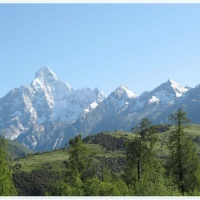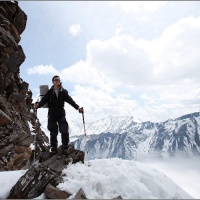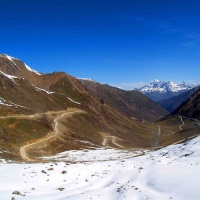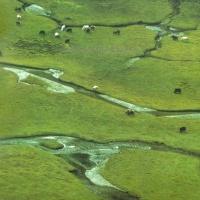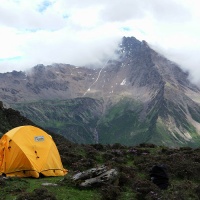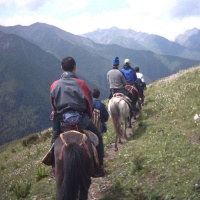- Home Page
- Fact Tours
Our sample tour itineraries of China and China travel packages are sorted by theme and available at competitive prices, you can browse what tours are right for you for your trip to China.
Popular China Tour Packages

Custom Tour Packages to China and Ask Our Experts for Free Enquiry !
- Coach Tours
- Destinations
Beijing, the capital of China. Its art treasures and universities have long made it a center of culture and art in China.
Beijing Top Attractions
Beijing City Tours
Best China Tours with Beijing
Shanghai, the cultural and economic center of East Asia. It renowned for its historical landmarks, the extensive and growing skyline.
Shanghai Top Attractions
Shanghai City Tours
Best China Tours with Shanghai
Xi'an, having held the position under several of the most important dynasties. It is the top destination to explore the facts of Chinese history.
Xi'an Top Attractions
Xi'an City Tours
Best China Tours with Xi'an
Huangshan boasts its culture, beautiful rivers, villages and mountains. It's home to 2 UNESCO World Heritage Sites and the Mecca of photographers.
Huangshan Top Attractions
Huangshan City Tours
Best China Tours with Huangshan
Sichuan is the cradle of the Shu culture, panda, mahjong, teahouse and spicy food. The province ranks first in China by number of UNESCO World Heritage Sites. It is called "the Heaven of Abundance".
Sichuan Top Attractions
Sichuan Tour Packages
Best China Tours with Sichuan
Yunnan, literally means the south of colorful clouds, due to its beautiful landscapes, mild climate and diverse ethnic cultures and traditions, is one of China's major tourist destinations.
Yunnan Top Attractions
Tibet, the nearest land to the sky, is known for its breathtaking landscape, splendid culture, art, buildings, and mysterious religions.
Tibet Top Attractions
Tibet Tour Packages
Best China Tours with Tibet
Explore the lost civilizations by riding a camel! Travel across the Gobi and the desert, and over the high mountains. Our Silk Road tours including different sections of the Silk Road in China.
Silk Road Top Attractions
Silk Road Tour Packages
Best China Tours with Silk Road
Guilin, an internationally-known historical and cultural city, has long been renowned for its unique karst scenery. Its vicinities are the paradise of hiking, caving, rafting, biking and countryside exploring.
Guilin Top Attractions
- China Facts
- China Hotels
- Travel Photos
Attractions
- Huanglong National Park
- Sichuan Opera
- Sichuan Cuisine
- Chengdu Teahouses
- Jinli Old Street
- Mahjong Games in Chengdu
- Shangli Old Town
- Jinsha Ruins & Museum
- Balang Mountain
- Siguniang Mountains Scenic Area
- Moxi Old Town
- Hailuogou
- Jiuzhaigou Valley
- Yading Natural Reserve
- Jianmen Pass
- Wolong Panda Reserve
- Langzhong Ancient City
- Chengdu Zoo
- Bifengxia Panda Base
- Bamboo Sea in Southern Sichuan
- Dujiang Weir
- Mount Qingcheng
- Leshan Giant Buddha
- Emei Mountain
- Dufu's Thatched Cottage
- Chengdu Giant Panda Base
- Xiling Snow Mountain
- Wuhou Temple
- Qingyang Palace
Siguniang Mountains Scenic Area
The Four Mountains
Siguniang Mountain means "the mountains of the four girls". From time immemorial it has been consecrated by the local Tibetan people. A legend has it that many years ago, there lived a mountain god named Balang who had four beautiful daughter, and the youngest was the tallest and had the most graceful figure. A devil admired the girls' beauty and wanted to marry them. So the devil suggested to the mountain god that they fight a duel. If he won, he would get the four girls. The mountain god was killed by the devil. And the four girls fled and eventually died from cold weather. Their bodies became the Siguniang Mountains and their father became the Balang Mountain. But another tale holds that the four girls were saved by a hunter and became fairies. The Siguniang Mountains resemble four graceful fairies wearing white mantles and waving to guests from afar. They stand shoulder by shoulder plunging their heads into the clouds, with glaciers wrapping around their shoulders and green forests around their waists. The fourth girl (the fourth peak/mountain), 6250m above the sea level, is the tallest among the four. The other 3 peaks/mountains (named as the first, second and third girl) are 5335m, 5454m, and 5664m respectively.
Changping Valley (Long-Peace Valle) mainly consists of forests, valleys and snowy mountains towering over valleys. One of the Siguniang Mountains lies 16 km inside the valley. And only part of the road is open to traffic and the rest are only suitable for people to walk or ride horses. The way from the Changping Valley to the Siguniang Mountains is very narrow and winding. Coniferous forest, broadleaf forest, sub-forests, shrub wood and weed clusters joggle together and exhibit their contrasting charms.
In Changping Valley, there are scores of ancient cypresses, lama monasteries, waterfalls of meters high. When you cross Changping Valley hiking or riding on horses, pass through original forests, bestride brooks, and surmount the snow-covered mountains, you can eventually camp after a trip of six or seven hours. There is a horse renting house at the Lama Temple, and the price is 50 to 200yuan a day. When it is the busy season of touring the price will rise.
Exploring Changping Valley requires a whole day, and there are no restaurants, so you must bring your own food and supplies into the valley with you.
Shuangqiao Valley (Shuangqiaogou)
In Shuangqiao (Double Bridge) Valley, two famous wooden bridges were built there, hence the name. The valley is at an elevation of 3,840 m, measures about 34.8 km. It includes 17 singhtseeing points and 54 scenic spots. This valley, like the Changping Valley, is a mountain sanctuary rivaled nowhere else in Aba. It is the most easily accessible place to view snowy peaks, pastures, grassland and forests. It is the most beautiful valley of Mt. Siguniang. With three sections covering an area of 216.6 square kilometers, the whole valley is accessible by tour bus. It's the easiest and quickest way to see the valley because of the amount of distance and the ruggedness of the terrain.The first section contains some unique sights including Willow (Yangliu) Bridge, Yinyang Valley, the White Poplar Zone, Sun-Moon Mirror Mountain (altitude15, 747 feet) and Five Colors (Wuse) Mountain (altitude14, 673 feet). Yinyang Valley extends 2 kilometers, and occupies the area near the entrance to Willow (Yangliu) Bridge. Out of the narrow ravine and steep cliffs a brook flows quietly. Entering the valley, the bright sunshine is suddenly disappears. If you raise your head and look up, you can only see a sliver of sky. The Sun-Moon Treasured Mirror Mountain stands next to the Five Colors Mountain. A huge rectangular boulder split in two on the snow-capped mountaintop looks like two bright mirrors hanging over the horizon. Five Color Mountain is the most spectacular sight in Shuangqiao Valley. The mountain is made from five colors of rock: red, yellow, green, blue and white. In the middle section is the Driven Fish (Nianyuba) Plank Road built along a cliff and the Shaji woods (Shahulin). Shaji is a small golden fruit, which is called the 'King of vitamin C'. In the last section are marvelous rock sculptures carved naturally by the wind. You can see wonderful shapes resembling an ape, a hunter, or a hawk beak. More than ten snowcapped mountains above 4,000 meters, make the area a favorite with climbers.
Haizi Valley (Haizigou)
Haizi Valley (Alpine-Lake Valley) has a total length of 19.2km, covers an area of 126.48 square kilometers. The valley is named after the numerous alpine lakes it contains, including Flower Alpine-lake (Haizi), White Alpine-Lake (Haizi), Blue Alpine-Lake (Haizi) and Yellow Alpine-Lake (Haizi). One of the lakes, Flower Alpine-Lake (Haizi), was formed by glacial seepage during the 4th century. Visiting this valley is for people who have experience in mountaineering and exploration. The beautiful surrounding mountains are reflected in the lakes where the non-squama Yunguyu (a type of primitive fish), the living fossil of this land, can still be found.
It is interesting that the boulders scattered along the lakes, look like swan eggs from a distance. Most of the lakes are 4,200 meters (about 13,650 feet) above sea level, so only a few tourists have visited them. But the few who have say that their beauty is staggering. There is no road for car in Haizi Gully but only cragged paths, and you can either walk or ride a horse. If you are a true lover of wilderness, Alpine-Lake (Haizi) Valley is definitely worth a visit.
Questions & Comments
Home | About Us | Partnerships | Terms & Conditions | Privacy & Security | Payment Guide | Resource Links| Sitemap
Email: contact@chinafacttours.com, Tel: +86-773-3810160, Fax: (+86) 773-3810333
Copyright © 2008-2020 China Fact Tours. All rights reserved
![]()










